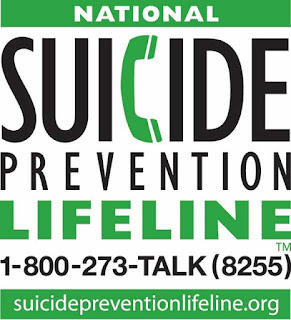Bourdain's name has been in the news because he apparently killed himself. This has everybody talking about suicide, and I think that's a very good thing. Suicide is a topic that deserves far more discussion than it receives. There have been some recent reports that the suicide rate in the U.S. is climbing, and I expect it will continue to do so for the foreseeable future. Maybe I'll address why I think that in another post at some point.
For now, I wanted to share a couple of persistent thoughts about the subject of suicide I've had as I've seen countless people talking about it on social media. I may decide to expand on one or more of them at a later date, but I wanted to express them in brief here.
My first thought pertains to the many people who have been encouraging anyone who is depressed to get help. I applaud their efforts, and I regard them as positive. At the same time, I cannot resist pointing out the following:
Many people in the U.S. who are struggling with depression do not seek help because they can not afford to do so. Our healthcare costs are still so high that even those of us fortunate enough to have employer-provided health insurance often find mental health treatment prohibitively expensive.I believe that this is a significant barrier that we need to change if we want to reduce the rate of suicide among persons who are struggling with depression. As much as I understand why people would want to tell others to seek help, the reality is that many cannot afford to do so. Until we change that, the admonitions to get help will only take us so far.
My second persistent thought is that not everyone who dies as a result of suicide does so because of depression or any other mental health problem. In fact, most people who kill themselves did not have an identified mental illness at the time. This will strike many as an odd thing to say, but a few of the people I've known who killed themselves did so for perfectly rational reasons that had nothing to do with mental illness. The clearest and most obvious example of this is the person who receives a medical diagnosis that indicates the sort of future we would not wish on anybody. The person then makes a rational decision to end his or her life rather than going through that.
I don't think there is much mental health treatment can do in this scenario. What I think we need to do is make medically assisted suicide more widely available so that people can choose to die with dignity on their own terms and do so in an appropriate way. Rather than risking the sort of botched suicide attempt where someone blows half his face off with a shotgun and survives, I think we need to provide everyone with the same courtesy we extend to our pets. I realize this is easier said than done and that there would be many important issues to work out, but it is a conversation we need to start having.
